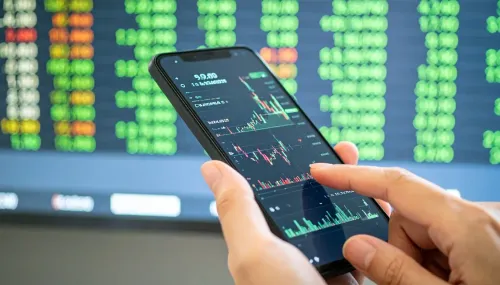Just 1 Hour of Daily Screen Time May Heighten Myopia Risk: Study

Synopsis
Key Takeaways
- 1 hour of screen time daily raises myopia risk by 21%.
- Exposure under 1 hour may provide a safety threshold.
- Study involved over 335,000 participants.
- Risks escalate significantly from 1-4 hours.
- Long screen sessions can affect cognitive functions.
New Delhi, Feb 23 (NationPress) A new alert has emerged for enthusiasts of digital screens. Research indicates that dedicating merely one hour each day to smartphones or tablets can considerably elevate the likelihood of developing myopia or nearsightedness. In a systematic review and dose-response meta-analysis, it was found that an additional hour of daily screen exposure correlates with a 21 percent increase in the chances of myopia, as outlined in the study published in JAMA Network Open.
The observed dose-response relationship displayed a sigmoidal pattern, suggesting a possible safety limit of under 1 hour of daily screen exposure, with risks climbing as usage extends to 4 hours.
“These insights can guide healthcare professionals and researchers in assessing myopia risks,” the researchers stated.
There has been a notable rise in myopia cases, primarily due to increased digital screen usage.
The research team analyzed data from 45 studies involving over 335,000 participants, ranging from toddlers to young adults, to explore the link between screen time and nearsightedness.
The findings indicated that risks escalated significantly from 1-4 hours of screen time, with a more gradual increase thereafter.
Nonetheless, no correlation was found with screen exposure below 1 hour, implying a potential safety threshold. The authors emphasize that these results may assist clinicians in tackling the so-called “myopia pandemic.”
Recently, industry experts in India deliberated on the implications of technology and gadgets, which pose significant challenges for students, parents, and educators, particularly during examination periods.
Extensive screen time can detrimentally impact cognitive functions due to diminished attention spans and often results in poor posture while sitting on beds or couches.
This can lead to various health issues, including obesity, body discomfort, spinal problems, and back pain.










